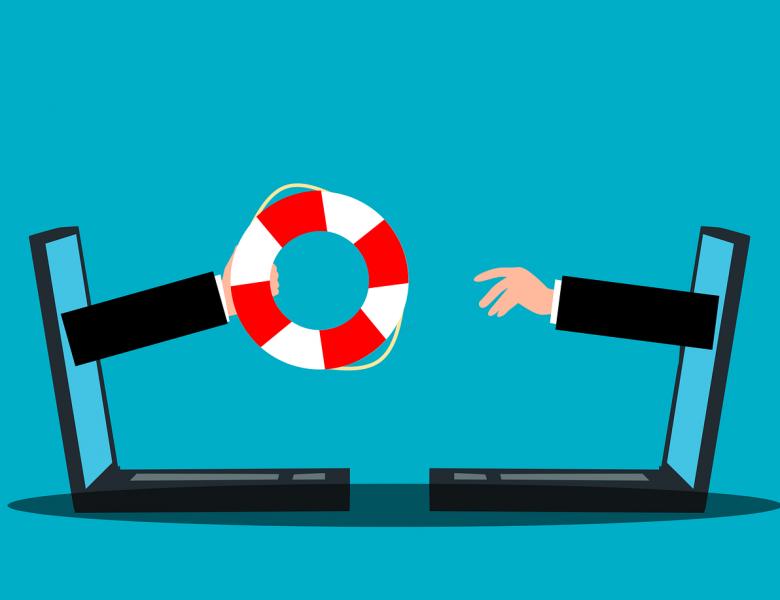According to the findings of new research, global businesses are feeling increasingly vulnerable to reputational risk. The reputation of each and every organisation can make or break it, so managing your reputation should be top of the agenda to support a business’s sustainability and survival.
Diane Wood, PR Director at V Formation, delves deeper into the findings of the research, and explains why a robust, effective, proactive PR campaign has to be the beating heart of every reputational risk management strategy.
 The fifth annual global risk landscape report (2020) by accountants and business advisers BDO, found that 70 percent of businesses have experienced an event that ‘posed a threat to its reputation’ this year.
The fifth annual global risk landscape report (2020) by accountants and business advisers BDO, found that 70 percent of businesses have experienced an event that ‘posed a threat to its reputation’ this year.
The survey of 500 C-suite executives across the world also revealed that companies are ‘alert to the dangers’ of reputational risk, and that family-run businesses and manufacturers feel the highest reputational risk of all the companies surveyed.
Additionally, the survey found that many companies remain reactive in their approach to managing reputation and reputational risk:
- 35 percent consider themselves to be reactive when handling reputational issues.
- Fewer than half (40 percent) believe their crisis strategy to be proactive.
- 25 percent say that shareholder price is a primary consequence of reputational damage.
- 25 percent believe customers would take their custom elsewhere as a direct result of a damaged reputation.
Putting the ‘R’ into PR
A good reputation is earned as a result of what an organisation says and does, and what others say about it.
Potentially, a company’s reputation can be its biggest asset. It makes you stand out from the crowd, gives competitive edge, and shapes perceptions of all key influencers – customers, suppliers, employees, investors, journalists and regulators – and, in turn, their decision to work with you.
Of course, we know that the R in PR stands for Relations rather than Reputation. But an effective PR campaign is also central to reputation, as it encompasses how you communicate with stakeholders and build and maintain good relationships with them.
To ensure a PR campaign maintains the best possible reputation for an organization, it’s critical to have a scoping PR strategy, which supports and integrates with the wider business and marketing strategies.
Winging it won’t always work!
According to BDO’s survey, one in three companies admit to being ‘reactive’ when it comes to their reputation – which is not the best strategy.
Crisis management is one of the most important elements of a PR and communications strategy.
The best way to be sure that your business can effectively manage a crisis is to be proactive and prepared. This way, the team knows how to respond and can do so quickly if a crisis comes knocking. Don’t assume it might never happen to your business or, that if it does, it will be alright to react if and when the time comes.
It is simply good business sense for every business to have a PR strategy, including a crisis response / management strategy, within its overall business strategy.
Protecting reputations
The last few months have shown just how quickly an organisation’s reputation can be destroyed by simply saying or doing the wrong thing. For instance, both British Airways and Weatherspoon’s reputations suffered instantly following their response to Coronavirus and the UK lockdown, and their pretty shoddy communication with and (lack of) support of their staff.
 With holidays, flights, weddings, celebrations and corporate events forced to cancel or postpone, the way brands have responded and if and how they’ve supported their customers will remain – good and bad – for years to come.
With holidays, flights, weddings, celebrations and corporate events forced to cancel or postpone, the way brands have responded and if and how they’ve supported their customers will remain – good and bad – for years to come.
Those organisations with a robust PR and crisis management plan in place have been clear to see. And the value of investing in such a plan has reaped benefits for their reputations and the sustainability of their brand.
Coronavirus is a unique crisis situation. But the nature of all possible and potential business interruptions, and how the business approaches and handles all and any crisis situations and threats to the business, play a vital role in how a business readies itself for any eventuality and situation – with a good reputation intact.
Time to talk
V Formation has worked with numerous companies, big, small, privately-owned, and not-for profit, to explore and anticipate the kind of potential threats they could one day face, and give them the tools, knowledge and confidence to implement a crisis management and communications plan if the time comes, with an eye firmly on managing reputation, along with the business’ integrity, future and survival.
To find out how to access affordable, tailored crisis communication support for your business, contact the V Formation PR experts here or call 0115 667 0131.



